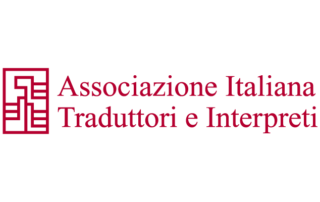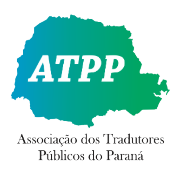Welcome to the news section!
Here you will find all the news related to ATRIL and the translation market.
The challenges of medical translations
Choosing a translation specialization is a natural step for many individuals entering this profession. Medical translation is considered one of the most prestigious, but also the most demanding and complex specializations. What are some of the greatest traps and pitfalls of medical translations?

The specifics of medical translations
Medical and pharmaceutical translations are among those associated with the greatest responsibility and subject to the strictest standards and regulations. They require the highest quality of work and the application of accurate language solutions, almost surgical precision, if you will. Knowledge of the current nomenclature is another factor that is hard to underrate.
Depending on the complexity of the text and its purpose, translations may be provided by translators who have appropriate education and knowledge in the field of translated subjects or by practicing physicians who speak both languages perfectly.
It’s a rather rare scenario that translations of medical or pharmaceutical documents are performed by just one person. To achieve the best quality of the text, a translation is usually prepared in several stages. For example, one person might translate a document that is excellent in terms of content and terminology, but it may be lacking in cohesion, structure or punctuation. The joint work of a team of professionals helps ensure the best result.
What kind of documents does a medical translator prepare?
Pharmaceutical and medical translations are usually translations of medical tests results, patients’ medical records or their medical history. Such translations, if they are to be used only by the patient for informational purposes, are usually treated as regular translations. However, if the documentation is to be used as official medical documentation, and will be presented to physicians, who will issue a diagnosis or treat the patient on its basis, then a sworn medical translation is usually required.
Traps and pitfalls of medical translations
The use of synonyms
Another trap is synonyms, which often results from using the specialist and non-specialist terminology in one document. For example “stomach” and “abdomen” are considered synonyms. In some (informal) contexts the two might be used interchangeably. Due to the frequency of their occurrence, consistency in translation should be treated as an absolute priority. The translation should have the appropriate register for the type of text. That’s why it shouldn’t contain non-specialist language – more understandable to lay people – as you’re translating documents for physicians and specialists.
The use of abbreviations
Another characteristic feature of the language of medical texts – and thus also a trap for translators – is the widespread use of shortened forms and abbreviations. They are a real challenge for translators, mainly due to their ambiguity. The use of abbreviations makes a document more concise, clearer and easier to read. Their meaning is often determined by the context in which they appear. Without specialist knowledge and the ability to recognize the context, the translator may often remain lost. Consequently, the quality of the text they create will suffer, as it may contain serious errors.
Translation of medical texts requires the translator to get to know the field to an extent available for a person who is neither a doctor nor a medical specialist in related fields. Otherwise, the translator won’t be able to understand the text he has undertaken. Apart from the knowledge of specialist terminology, you should also understand the context in which a given text functions. It’s also very important to have access to all kinds of sources from conventional dictionaries, through glossaries, reference books and textbooks, to medical databases, articles and information posted online. The last step in the process is consultation with an expert, a specialist in a given field, as their contribution may help improve the quality of the created texts and allow for more effective communication. Thanks to all of these factors, a translator can escape the traps, avoid errors and rise to more and more interesting challenges.
Going on holidays – 5 things to do before leaving
So you’ve booked a flight, a hotel room, your suitcases are already packed and all you can think of is sweet holidaymaking on some sandy beach. That’s great! There’s no denying that the prospect of holidays is exciting, but are you sure you haven’t forgotten about anything? Why don’t you go through the list below, to make sure you have prepared your business for your absence. There are a couple of things you should remember about before going on holidays.
5 things a freelancer might want to take care of before going on holidays
1) Notify your clients ahead of time
The most important step is to inform your clients about your holiday plans. A good practice is to do it ahead of time, so that they know within which dates your business will remain closed. That way they will have time to prepare to the fact that you won’t be able to respond to their e-mails or take on new assignments. It also gives you (and your clients) time to deal with urgent matters before you turn your phone off and enjoy the well-deserved bliss.
If you’re working in an office or co-work with other translators, notify colleagues about your holidays. Prior to your vacations, ask if there are any matters that will require your involvement in the near future. Make sure there is plenty of time to close the current stages of projects and give your co-workers a chance to prepare for your absence.
2) Find an emergency contact for when you’re away
It may well happen that despite having been notified ahead of time, your clients will still have some urgent jobs that need to be taken care of. What then? You can just shrug and say that you too deserve some time-off, after all. But what if you fear that by turning down an offer you could lose an important client? Well, perhaps there is some way around it. If you know a fellow translator whom you find reliable, perhaps you could ask them to take care of urgent matters for you. Then, when they go on holiday, you can simply return the favour.
3) Set up an automatic bounce-back message
Set up an automatic reply to notify your contacts that you are away with no/limited access to your mailbox. Make sure you include information about when exactly you’re coming back. As a result, when your clients try to reach you, they won’t be annoyed by the lack of response on your part. If it’s possible, include contact information to someone who can replace you in case of emergency.
4) Take care of your bills before departure
Remember to deal with your finances before going on holidays. If you pay your bills prior to your departure, it will be easier for you to actually enjoy your time-off. Take some time to schedule your payments to avoid unpleasant surprises and awkward situations. If you’re subcontracting projects to others, make sure you pay them too. All in all, you would expect your partners and clients do the same for you, right?
5) Clean up your desk
The last thing you want to see after you come back from the summer bliss is a messy pile of documents on your desk or an unwashed cup that started growing new life while you were away. Such a sight won’t make switching back to the work mode any easier. That’s why, before going on holiday, take one last look at your workplace. Try to leave it in a state you would like to find it when you return. Throwing out unnecessary papers, cleaning the monitor or arranging the office accessories will take a little while, but can make all the difference when you’re back and expected to resume your duties.
Rush translations – why you should charge extra
Hands up if you’ve ever had to complete a translation project “for yesterday”. Right. In today’s fast-paced world more and more clients need their translations for te proverbial ASAP. At the same time, the sad reality is that a lot of people are unaware of what it takes to translate a document. Many assume translators merely exchange words or believe that any bilingual individual will be capable of translating any type of text.
The truth is that performing a standard translation job can be a mundane and time-consuming activity. With rush translations, which interfere with your sleep, leisure time or weekend plans, it can get more frustrating both for you and your family. Therefore, it seems reasonable and quite understandable to charge extra for jobs that needs to be done quickly.
What exactly are rush translations?
There’s no one clear definition. Usually, the term refers to jobs that need to be completed on the same day, or within 24 hours. But it can be different for each translator or translation agency. The final cost depends on the size of the translated text, its subject matter, the number of translators involved, specialized vocabulary and many other factors. Higher price for rush translations is also dictated by a greater amount of work. Another factor that needs to be taken into account is your schedule. It’s often the case that a translator needs to reorganize their work, so that the urgent project becomes the most important one. If, on the other hand, you’re fully available, you might want to stick to your standard pricing scheme.
How much more should you charge? Again, it’s difficult to give a simple answer to this question. Numerous aspects need to be taken into account here. The volume of the document, specialized language, how tight the deadline is – to name just a few. If taking the rush project on requires you to rearrange your work on other jobs, it should also be reflected in your rate. Not to mention, if you need to hire someone else to help you. The final price might also be different, if it’s a job from one of your regular clients. There are no one-size-fits-all solutions here.
Rush translations: risks and challenges
No specialist in any field likes to do his job under time pressure. Translation services are no exception. Translating a document faster than normally will always be subject to more mistakes. Though sometimes it’s possible to minimize this risk – by involving more than one translator and a proofreader in the process, you can never eliminate it altogether. That’s why many translation agencies openly state that assignments with extremely short deadlines are not subject to complaint.












